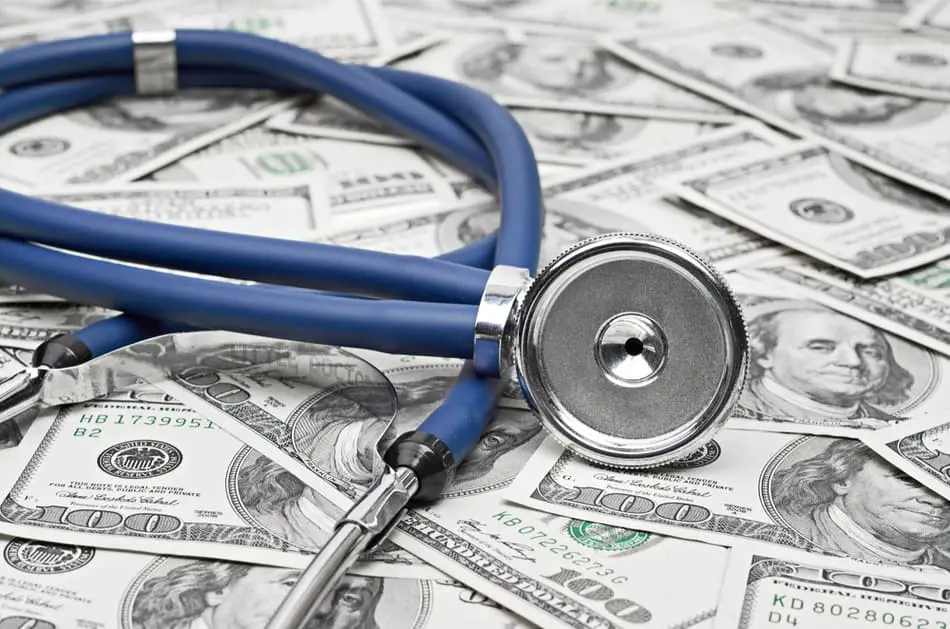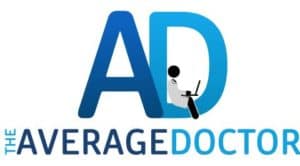
When you think of doctors, do you think of someone who makes a lot of money? I know I did. And I wasn’t wrong. But is money the only reason why people decide to become doctors?
Becoming a doctor isn’t just about the money. Doctors train for years, accrue large amounts of student loan debt, and forego other potentially more lucrative careers to become doctors. For most doctors, money isn’t the reason why they entered their profession.
But doctors can make a lot of money. With a little bit of financial know-how, they can even become millionaires. So why wouldn’t becoming a doctor be about the money?
The Relationship Between Doctors and Money
I’m a physician who is relatively early in his career. I’ll be the first to admit that I was extremely happy when I got my first real doctor paycheck. It was larger than my residency paychecks and significantly larger than my cash tips when I was a restaurant server.
I know that if I manage my money the right way, I should be able to achieve financial independence within the next 20 years. If I’m save extremely quickly, I can potentially get there in 10.
But by the time I got that first paycheck, a number of my friends who decided not to become doctors were already financially independent. They worked in a number of different industries where their income far outpaced my own as a physician.
How did they beat me? Especially if I’m supposed to be super rich as a doctor…
The secrets are time and compound interest.
If you go back to high school and undergrad, my friends and I had very similar net worths. Give or take a few thousand dollars accounting for differences in student loans, spending habits, or side gig money, we all had zero, negative, or near zero net worth when we graduated college.
That’s where our paths diverge. They went on to start careers while I went on to medical school. Suddenly, the difference in our net worths started to appear.
According to the AAMC, the median medical student accrues about $50,000 of debt for every year of medical school. By the time they graduate, they’re 28 years old with approximately $200,000 of student loan debt.
Then they go to residency, which is anywhere from 3 to 7 additional years of training where the average salary is $63,400. After accounting for food, housing, and other living expenses, that doesn’t leave a lot for loan repayment.
By the time doctors get their first real paycheck, they’re at least 31 years old with a net worth of less than negative $200,000.
Compare that to my friend who during the time I was training had already been a senior developer at multiple companies and worked for a startup that got acquired when he was 30. Then add in the effects of compound interest and hopefully you can see the difference in net worth between doctors and other professionals.
If being a doctor was just about the money, I think I would have rather done something else.
How Much Money Doctors Make
Comaparing being a doctor to being a successful software engineer can be tricky. Not every software engineer’s company gets acquired, and physician salaries vary wildly by specialty. Of course, most successful software engineers make at least $90-100,000 per year. But how much do doctors actually make?
Perhaps the best resource for physician salaries is the medscape physician compensation report.
A few highlights from 2020:
- Orthopedic Surgeons are the highest paid physicians, making $511,000 on average.
- Plastic surgeons are a close second, making $479,000.
- The lowest paid physicians are pediatrics, preventive, and family medicine, making $232,000 and $234,000, respectively.
- The total range of average salaries is from $232,000 to $511,000.
Actual salaries can vary wildly due to employment model (employee vs independent contractor vs owner), hours worked (full time vs part time), region, and a number of other different factors.
So yes, physicians absolutely do make high salaries. Much higher than a software engineer making $100k/yr. But it’s hardly a get rich quick scheme. In fact, it’s not even the best get rich slow scheme.
There are a number of other ways to make enough money earlier in life that with time and compound interest, you could end up better off financially than if you’d become a doctor. It just requires making money while your med school friends are building debt.
Like being a nurse, making $80k/yr in your early 20s. Or a PA making $150k/yr by your mid 20s? Or a software engineer? A laywer? A compliance expert? A real estate agent? Or any number of other careers that make money much earlier in life?
Would I choose those careers over being a doctor? I could absolutely be much better off financially right now if I did.
But I didn’t. And I wouldn’t now if I could make that choice again. There’s something else that makes me want to be a doctor.
Why People Become Doctors
I would be lying to you if I said that money wasn’t something I considered when I was applying to med school. Spending almost 10 years studying and training and building debt, I wanted to come out of it as someone who was well paid. It absolutely is part of the reason I (and others) become doctors. It’s just not the only reason.
People become doctors for a number of different reasons. Maybe it’s something you’ve always felt destined to do. Or you have a passion for biology and anatomy and physiology. Sometimes a person has a medical experience experience that drives you to the profession. Or maybe you were just really inspired by that episode of Grey’s Anatomy.
It’s tough to pinpoint exactly why someone would want to do this. For me, it’s because I felt comfortable in the world of medicine throughout my life. When it was time to figure out what I wanted to do, I couldn’t think of anything else to, so I decided to go to medical school. And now I come home from work every day feeling pretty content with how my day went.
To me, that’s good enough.
Being A Doctor Just For the Money
If you still think that going to medical school is a way to get rich, here’s how you’d do it.
First, go to college and take your prerequisite courses. Biology, Chemistry, Physics, Biochem, and Organic Chemistry. And make sure you get good grades.
Then, volunteer, do research, and take the MCAT, getting the highest score possible. Apply to dozens of schools and fly across the country for interviews. When you get in, start applying for student loans.
For four years in school, try to get the highest grades possible to look good on your residency applications. Ace your shelf exams and your boards, and choose your specialty. Again, apply broadly and fly across the country for interviews.
As a resident, enjoy your $63,400 salary (which comes out to about $16/hr accounting for your 80 hour works weeks). Spend it wisely. Maybe open a roth or put some toward your loans. Make sure you’re learning though, because in 3 to 7 years you’ll be on your own and responsible for taking care of other people’s health.
Then you’re an attending. Find a good job and celebrate your first paycheck. But here’s the trick, don’t spend it!
To really get rich by being a doctor, you’ll have to avoid spending all that money. Live like a resident for about 3-5 more years to lower your debt and build some assets. Get your net worth back to zero.
Make sure you’re still saving enough and choosing the right investments. Then work another 5 years avoiding any financial catastrophe like lawsuits or divorce and you’re on your way to your first million.
Hopefully, you’ll be a millionaire by your 40s. Which isn’t terrible in the general scheme of things.
Or you could see that being a doctor isn’t just about the money. And if making money is your goal, there are plenty of other ways to do it better.
